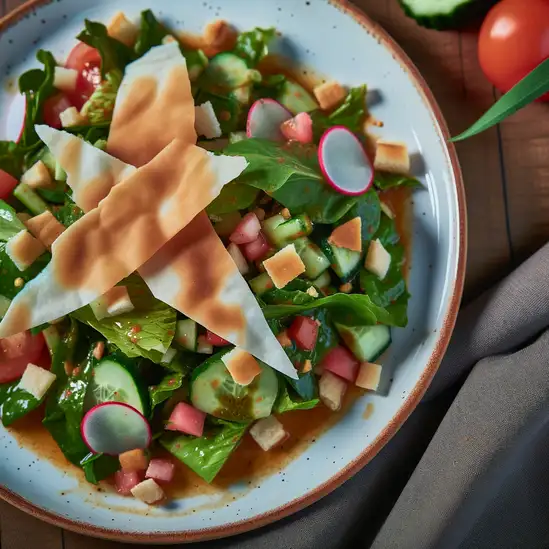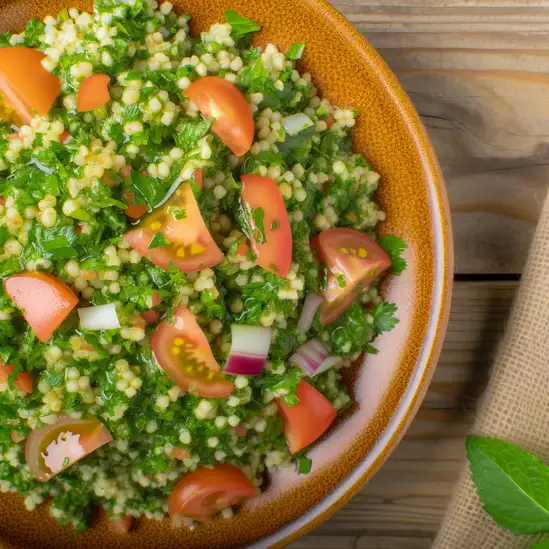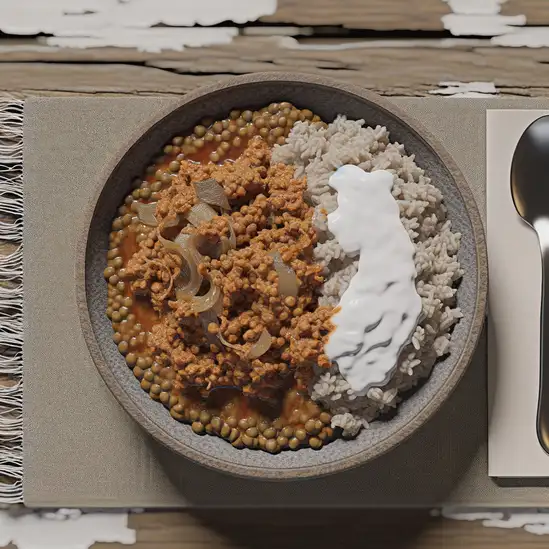



If you wander into Sidon,you’ll immediately feel the pulse of a city that’s both ancient and alive,where history isn’t just in museums—it’s woven into the very streets and salty sea breeze. The moment you step near the old harbor,the calls of fishermen mingling with the clatter of seagulls create a soundtrack that’s uniquely Sidon. The air carries the scent of fresh fish grilling on open flames,mingling with the earthy aroma of spices from nearby markets. It’s a place where time slows down just enough for you to savor the simple pleasures. Sidon’s character is a beautiful blend of old-world charm and warm,everyday life. The labyrinthine souks invite you to get lost among stalls bursting with vibrant fabrics,hand-crafted soaps scented with rose and laurel,and piles of dried herbs. Locals greet you with genuine smiles,eager to share stories or a cup of strong,sweet Lebanese coffee. The city’s architecture tells tales too—from the imposing Crusader Sea Castle standing guard over the Mediterranean to the intricate mosaics hidden inside the Khan al-Franj. What makes Sidon truly special is its rhythm:the slow,deliberate pace of fishermen mending nets,children chasing each other through narrow alleys,and the gentle lapping of waves against ancient stone walls. It’s a place where you can taste the history in every bite of freshly baked manakish or sip on a glass of arak while watching the sun dip below the horizon. Sidon doesn’t just invite you to visit—it welcomes you to feel,taste,and live its story.
The information on this page is currently being reviewed by Tripkliq and should be used as a guide only
Eng word: Hello
Eng pronunciation: Marhaban
Local language: مرحبا
Eng word: Goodbye
Eng pronunciation: Wada'an
Local language: وداعا
Eng word: Thank you
Eng pronunciation: Shukran
Local language: شكرا
Eng word: How much
Eng pronunciation: Kam al-si'r
Local language: كم السعر
Eng word: Toilet
Eng pronunciation: Mirhad
Local language: مرحاض
Eng word: Help me
Eng pronunciation: Sa'idni
Local language: ساعدني
Eng word: Yes
Eng pronunciation: Na'am
Local language: نعم
Eng word: No
Eng pronunciation: La
Local language: لا
Eng word: Excuse me
Eng pronunciation: Afwan
Local language: عفوا
Sidon was one of the most important cities of ancient Phoenicia, known for its thriving port and maritime trade. It played a crucial role in the spread of Phoenician culture and commerce across the Mediterranean.
The Temple of Eshmun, located just outside Sidon, is a significant archaeological site dedicated to the Phoenician god of healing. It dates back to the 7th century BC and showcases impressive ancient architecture.
Built by the Crusaders in the early 13th century, the Sidon Sea Castle is a stunning fortress located on a small island connected to the mainland by a narrow causeway. It offers panoramic views of the Mediterranean Sea.
Debbane Palace, constructed in the 18th century, is a beautiful example of Ottoman architecture. It now houses the Sidon Soap Museum, where visitors can learn about the traditional soap-making process.
The Sidon Soap Museum, located in the Debbane Palace, offers a fascinating insight into the history and techniques of soap-making in the region. It highlights the city's long-standing tradition of producing high-quality soap.
Khan al-Franj, or the 'Inn of the Foreigners,' is a historic caravanserai built in the 17th century. It served as a hub for merchants and travelers, and today it stands as a testament to Sidon's vibrant commercial past.
The old souks of Sidon are a maze of narrow alleys filled with shops selling traditional crafts, spices, and local delicacies. Walking through these markets offers a glimpse into the city's rich cultural heritage.
Also known as Qalaat al-Muizz, St. Louis Castle was built by the Crusaders in the 12th century. It stands on a hill overlooking Sidon and provides a historical perspective on the city's strategic importance.
Sidon was renowned for its production of Phoenician glass, a highly prized commodity in ancient times. The city's artisans were skilled in creating intricate glassware that was traded across the ancient world.
In Sidon, the most common Power Adaptor is Type C, Type D, Type G.







A refreshing salad made with mixed greens, tomatoes, cucumbers, radishes, and crispy pieces of pita bread, dressed with a tangy sumac vinaigrette.

A fresh salad made primarily of parsley, tomatoes, mint, onion, and soaked bulgur, dressed with olive oil and lemon juice, Tabbouleh is a staple in Lebanese cuisine.

A hearty dish made from lentils, rice, and caramelized onions, Mujadara is a staple in Lebanese cuisine and is often served with yogurt or a side salad.

Given Sidon's coastal location, grilled fish is a must-try, often marinated with local spices and served with garlic sauce and fresh vegetables.

A traditional fish and rice dish, Sayadieh is made with spiced rice cooked with fish stock and topped with fried fish, often garnished with caramelized onions and served with tahini sauce.

Kebbeh is a popular dish made from bulgur wheat, minced onions, and ground meat, typically lamb or beef. In Sidon, it is often served in various forms, including fried, baked, or as a raw dish.

These are savory pastries filled with spiced meat, cheese, or vegetables, often deep-fried or baked, and are a popular snack or appetizer in Sidon.
Beirut is one of those cities that grabs you the moment you step onto its bustling streets. There’s an electric energy in the air—a mix of old-world charm and modern pulse that feels alive in every corner. Imagine walking along the Mediterranean coast,the salty breeze brushing your face,while the call of street vendors and the distant hum of music blend into a vibrant soundtrack. The city’s skyline is a patchwork of sleek towers and crumbling Ottoman-era buildings,each telling a story of resilience and reinvention.
What really makes Beirut unforgettable is its soul. It’s a place where history and culture collide with a youthful spirit. You’ll find yourself wandering through narrow alleys lined with colorful street art,stopping at tiny cafes where the rich aroma of freshly brewed Arabic coffee mingles with the scent of za’atar and grilled meats. The people here are warm and fiercely proud,always ready to share a laugh or a story over a plate of mezze that bursts with flavors—think tangy sumac,creamy hummus,and smoky baba ganoush.
Evenings in Beirut have their own magic. The city lights up with lively bars and rooftop lounges where you can sip on arak while watching the sunset paint the sky in shades of pink and gold. It’s a place that invites you to slow down,soak in the contrasts,and feel connected to a culture that’s as rich and layered as the city itself. Trust me,Beirut isn’t just a destination—it’s an experience that stays with you long after you leave.
One of the oldest continuously inhabited cities in the world,Byblos offers ancient ruins,a charming harbor,and a UNESCO World Heritage Site.
ExploreIf you ever find yourself wandering down Lebanon’s southern coast,Tyre is a place that wraps around you like a warm,salty breeze. There’s this timeless rhythm to the city—ancient stones whisper stories beneath your feet while the Mediterranean waves hum softly nearby. Walking through Tyre,you’ll catch the scent of fresh sea air mingling with the earthy aroma of spices from bustling markets. It’s a city where history isn’t just in museums; it’s alive in the crumbling Roman arches,the mosaic-tiled floors,and the narrow alleys where locals greet you with genuine smiles.
The vibe here is relaxed but rich with character. You can sit at a seaside café,sipping on strong,sweet Lebanese coffee,watching fishermen haul in their catch,or stroll along the sandy beaches where the water is impossibly clear and inviting. At night,the city glows softly under lantern light,and the sound of Arabic music drifts from nearby restaurants,inviting you to taste fresh seafood grilled to perfection,paired with tangy tabbouleh and warm,fluffy pita.
What makes Tyre truly special is how it balances the old and the new. It’s a place where ancient ruins stand proudly beside lively souks,and where the warmth of the people makes you feel like you’ve stepped into a story that’s been unfolding for thousands of years. Visiting Tyre isn’t just about seeing a place—it’s about feeling its heartbeat and carrying a piece of its soul with you when you leave.
If you ever find yourself wandering through Larnaca,you’ll immediately notice its laid-back charm that feels like a warm embrace. The city hums with a gentle rhythm—waves lapping against the palm-lined promenade,the distant chatter of locals sipping coffee at sun-dappled cafes,and the occasional call of seagulls overhead. It’s a place where history and everyday life blend seamlessly,from the ancient ruins tucked away near the salt lake to the vibrant markets where fresh citrus and spices fill the air with a heady sweetness.
Walking along the Finikoudes promenade,you’ll catch the salty breeze mingling with the scent of grilled halloumi and freshly baked bread wafting from nearby tavernas. The streets invite you to slow down,to savor a glass of chilled Commandaria wine while watching fishermen haul in their catch or children chasing each other along the shore. There’s a genuine warmth in the smiles of the locals,a sense of community that makes you feel like you’re part of something timeless.
What makes Larnaca truly special is its blend of old and new—the Byzantine churches standing quietly beside trendy art galleries,the traditional Cypriot meze plates shared under the glow of string lights. It’s a city that encourages you to explore at your own pace,to lose yourself in its stories,and to return home with a heart full of sun,sea,and unforgettable moments.
If you ever find yourself wandering the sun-drenched shores of Cyprus,Limassol is the kind of place that wraps you in a warm,lively embrace from the moment you arrive. There’s this effortless blend of old-world charm and modern buzz that makes the city pulse with energy without ever feeling rushed. Picture strolling along a palm-lined promenade where the salty sea breeze mingles with the scent of freshly grilled seafood and sweet jasmine from nearby gardens. The Mediterranean sun casts a golden glow on the vibrant marina,where sleek yachts bob gently beside colorful fishing boats,and laughter spills out from cozy cafes and tavernas.
Limassol’s character is a beautiful mix of tradition and cosmopolitan flair. You can lose yourself in the narrow streets of the old town,where Byzantine churches and medieval castles whisper stories of centuries past,then pop into a trendy art gallery or sip a perfectly brewed coffee in a hip,sunlit courtyard. The locals are warm and welcoming,their easy smiles inviting you to slow down and savor life’s simple pleasures—whether that’s a glass of local wine or a plate of halloumi sizzling on the grill.
What really stays with you is the city’s rhythm—the gentle lapping of waves,the clinking of glasses at sunset,the hum of conversations in multiple languages. Limassol feels alive but never overwhelming,a place where every corner holds a new flavor,a new story,and a new reason to stay a little longer.
A Greek island city known for its medieval Old Town,stunning beaches,and ancient ruins. Rhodes is a top destination for history and island lovers.
ExploreSome money changers may offer unfavorable exchange rates or use sleight of hand to shortchange tourists.
Scammers may pose as representatives of charities, asking tourists for donations that never go to a legitimate cause.
Unlicensed individuals may approach tourists offering guided tours, but they often provide little value and charge high fees.
Tourists may be charged significantly higher prices for souvenirs or handicrafts in markets, especially if they don't negotiate.
In crowded areas like markets or tourist attractions, pickpockets may target tourists who are distracted or carrying valuables visibly.
Certain restaurants may inflate bills by adding items not ordered or charging higher prices than those listed on the menu.
Street vendors may sell counterfeit or low-quality goods at high prices, claiming they are authentic or handmade.
Some taxi drivers may not use meters and charge tourists inflated prices, especially if they sense the tourist is unfamiliar with local rates.
Some individuals may offer boat tours at the Sidon harbor, but these tours may be unsafe or overpriced.
The use, possession, and trafficking of drugs are strictly illegal in Lebanon, including Sidon. The country has stringent laws and severe penalties for drug-related offenses, including long prison sentences and heavy fines. Tourists should avoid any involvement with illegal drugs to avoid serious legal consequences.
In Sidon, Lebanon, smoking is generally allowed in public places, although there are some restrictions. Smoking is prohibited in enclosed public spaces, such as restaurants, cafes, and public transportation. However, enforcement of these rules can be inconsistent. Tourists should be mindful of designated smoking areas and respect local customs and regulations.
Vaping is relatively new in Lebanon, and the regulations are not as clearly defined as those for smoking. Generally, vaping is treated similarly to smoking, meaning it is likely subject to the same restrictions in enclosed public spaces. Tourists should exercise caution and follow any posted signs or local guidance regarding vaping.
What are other people saying about Sidon?
Recent Social posts about Sidon
There is nothing to show you for now.